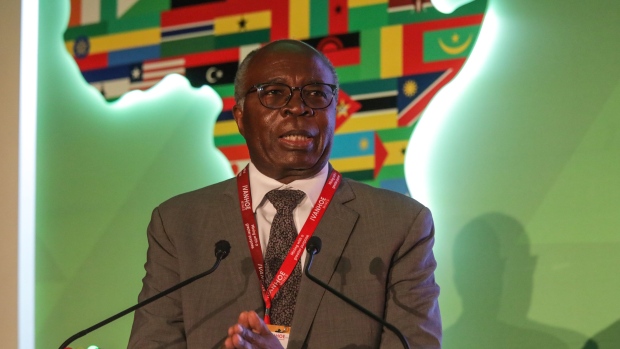Apr 16, 2024
Zambia’s Musokotwane Sees Commercial Creditor Deal In Months
, Bloomberg News

(Bloomberg) -- Zambia has made good progress in concluding a marathon debt restructuring and is confident of soon striking agreements with its remaining creditors.
“We expect the deal to be done in months,” said Finance Minister Situmbeko Musokotwane. “I am very confident that we have made a lot of progress,” he said in an interview with Bloomberg Television Tuesday in Washington.
Africa’s second-biggest copper producer — which in 2020 became the continent’s first pandemic-era defaulter — has so far struck deals to revamp $10.1 billion of its liabilities, including with official creditors and eurobond investors. It has $3.3 billion remaining owed to commercial creditors including China Development Bank and the Industrial and Commercial Bank of China Ltd.
The minister, in Washington to attend the Spring Meetings of the International Monetary Fund and World Bank, said a recent visit to China by a delegation from Zambia had been “extremely productive.”
Zambia’s deal to revamp $6.3 billion of its official debt — about half of which China holds — saw it push out repayment schedules by years and on lower interest rates. The creditors didn’t take a haircut, or reduction of value, on any of their principle investment. When asked if deals with CDB and ICBC would resemble those agreements, Musokotwane said they would.
Holders of Zambia’s $3 billion in outstanding dollar bonds — or $3.8 billion if past-due interest is included — agreed to take a 26% haircut on what Zambia owed them in return for getting much of the remaining money paid back sooner than the official creditors, as well as higher interest rates.
Common Framework
Zambia began the restructuring process in February 2021 under the Group of 20’s Common Framework. The mechanism, which has been widely criticized for being too slow, seeks to bring the traditional Paris Club group of national lenders around the table with large sovereign creditors including China and India.
Musokotwane said the prolonged process showed the need to establish clearer timeframes within the Common Framework to speed up the process. But he defended Zambia’s decision to deploy it rather than try to cut bilateral deals with each of its many creditors.
“We have no regrets” on using the Common Framework, he said, noting that it helped to remove suspicions among lenders that Zambia might cut a better deal for some that left others worse off. The framework gave creditors confidence that all would equally “share the burden” of debt relief, he said.
--With assistance from Taonga Mitimingi.
(Updates with more details from fifth paragraph.)
©2024 Bloomberg L.P.






